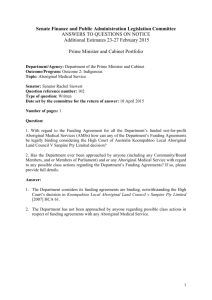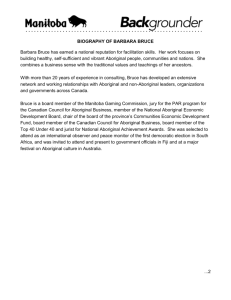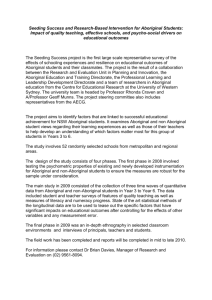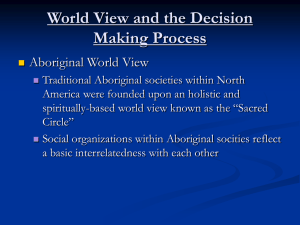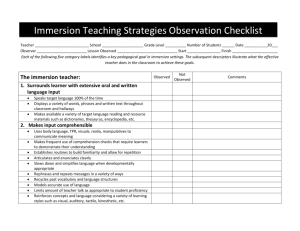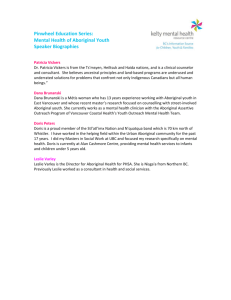Cultural immersion the key to the next 50 years
advertisement
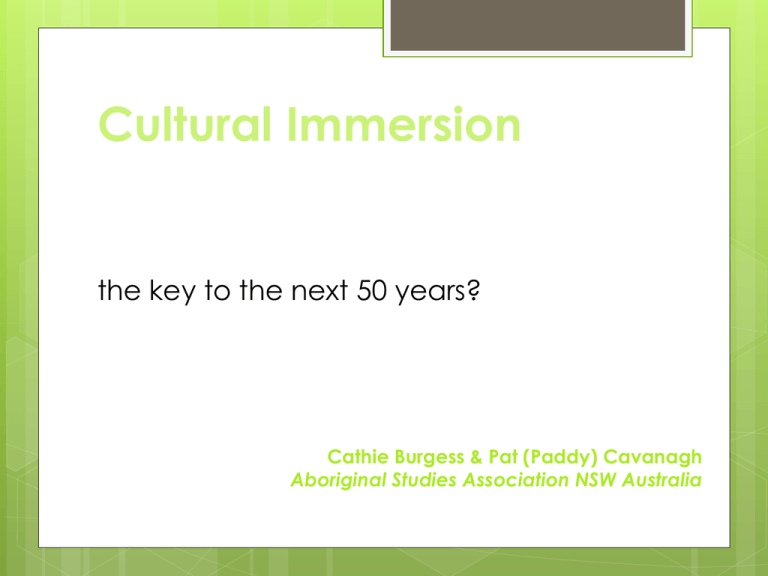
Cultural Immersion the key to the next 50 years? Cathie Burgess & Pat (Paddy) Cavanagh Aboriginal Studies Association NSW Australia The ‘Connecting to Country’ Program A 5-day intensive professional development program targeting Principals, New Scheme and newly appointed teachers in 300 targeted schools: a 3 day cultural immersion program conducted by local AECGs; AND a subsequent 2 day program provided by DEC's AECE Data Analysis Quantitative data: • 357 participant evaluations (AECG) Qualitative data: individual interviews and focus groups: • 54 participating teachers Impact of Cultural Immersion • 98.2% positive response from participants with no prior learning • 97.5% of ALL participants increased knowledge & understanding • 90.5% reported adopting new approaches to teaching history & culture • 81.1% reported changed approaches to teaching Aboriginal students • 83.8% reported enhanced confidence and understanding in developing relationships with Aboriginal parents & community • 94.6% would recommend this program to other teachers Wenger’s conceptual framework – social learning systems (1998, 2000) Demonstrates how two perceivably different and conflicting communities can become a community of practice – transformative potential in Aboriginal education Modes of belonging Communities of practice Analysis: modes of belonging Engagement Imagination Alignment “It was a very inclusive program. I felt befriended and I think every Australian should attend something like this --- it was so effective in building bridges. And I loved being with my Aboriginal colleagues in an informal setting where everyone was on the same level and working together”. Analysis: communities of practice Joint enterprise Mutuality Shared repertoire “The excursion to Mootwingee was a real shared experience.... It was something to build a relationship on and it helped me make real connections … it was a platform for me to have a shared story, walking around together, chatting about life , home and kids. It was like a family putting on a demonstration of their strength …. a happy party”. BENEFITS of learning through a social process Perceptions of ‘Other’ community changed Shared purpose and brokering relationships Empowering teachers and impact on pedagogy THE CHALLENGE of the next 50 years? Explicating practice theory – awareness of Transforming teaching Bringing good learning to good cultural immersion into the classroom




